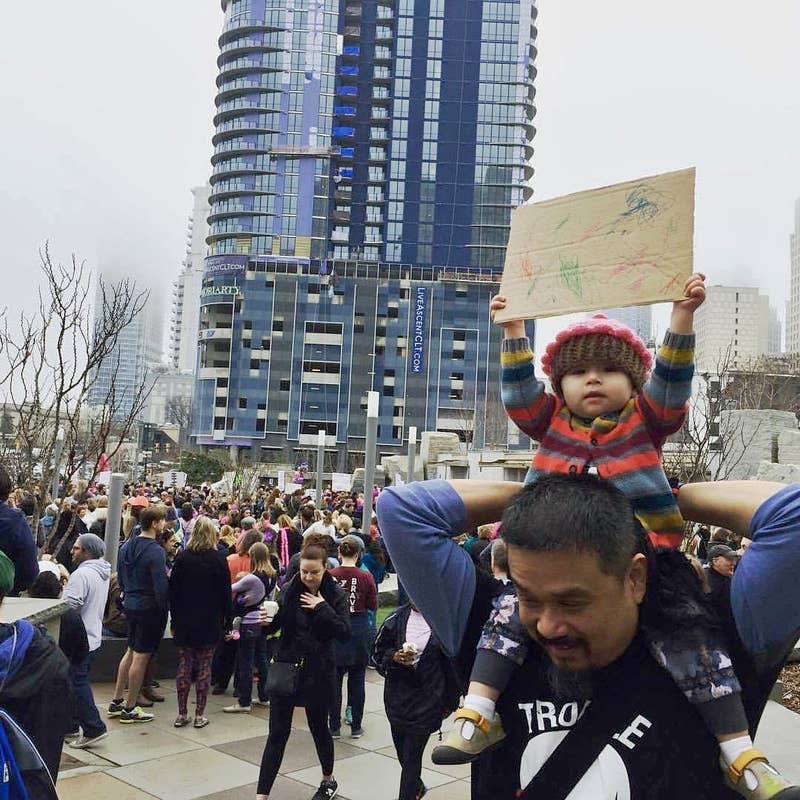
We talk a good talk about the dignity of the child in Montessori, the ways in which we respect children’s choices, preserve their agency, respect the society they create. Children want to make their own decisions and contribute to their own community. But perhaps the best way we can demonstrate our respect for the dignity of the child is to support them in their efforts to be useful.
And they do want to be useful. So many spaces designed for children are designed to keep them distracted, but children don’t want to pass their time. They are not naturally lethargic or lazy. They want to be useful, to contribute in the ways that make the most of their abilities, even if their abilities are quite small.
Thank goodness!
When we look at children’s activity as something that might get in the way of what we need to accomplish, children become a burden or a nuisance, something we have to accommodate instead of something on which we can rely. But when we respect children’s activity as something that is driven toward usefulness and motivated by a sincere desire to take part in meaningful ways, the child is elevated as a purposeful contributor and a resource. And, together, we can joyfully move about the practical demands of the day.
Because that’s what Practical Life really is– it’s not just a series of activities designed to develop children’s fine motor control or to instill the habits of mind of left-to-right patterning or one-to-one correspondence. The Practical Life exercises are whatever needs doing in the community the children share. In the classroom, this might be setting a table for lunch or sweeping up the floor. It may be cutting and arranging flowers or sorting laundry. At home, this might be weeding the garden or making up a bed. Cleaning the countertops, trimming the tops from strawberries, washing baseboards… these are not chores to the child if they are real needs of the community.
As adults, we think about these things as the “have-tos” that keep us from our own entertainment. And so, from that thinking, we create lists or schedules that demand children finish their chores before they can play. In these systems, we teach children that caring for their communities, that doing their part in the small society of their homes and classrooms, is something to avoid, something that keeps them from the fun. And worse, we teach them that we are their task-masters instead of their companions in these communities. We become jailers instead of parents, measuring out when they can do what they want from when they can do what we need them to do.
But children want to do these things. They want to participate in the community that is larger than themselves. They want to know that their work, just like the work they see their parents finishing, matters to the other people around them. They find agency through these practical experiences, and through agency, build their sense of themselves as people who matter. They want to be a part of their communities, of their classes and their families, not as observers or tokens to be kept busy, but as meaningful participants whose activities make a difference.
And it’s our job to assist that. When a child is struggling, instead of swooping in to finish their task for them (and thus reminding them that we don’t actually trust them to do it alone,) be present with them as they struggle, offering support if they ask for it but no more than is needed to allow them to finish it themselves. When we have things we know we need to get done, instead of keeping children busy by handing them our phones or tablets or telling them to go play in another space, look for the parts of the activity that the child can handle independently. There’s almost always something, bagging fruit at the grocery or carrying the envelope with deposits to be made at the bank, setting the table and preparing dinner alongside you at home or packing their backpacks for the next day while you put together your bag for the morning. These aren’t invented tasks, and the child knows that. It’s not about helping them to look busy. We need to assist them in purposeful activity, remembering that all those special skills they need, the fine motor control, the one to one correspondence, the ability to pour water or hang aprons, are best developed through practice when the opportunity arises and those skills are needed. “The most admired work,” is not the work with the loudest bells and whistles, but “that which offers the greatest opportunities to each one.”
* A response to Chapter 5, Part 1: Education to Movement The Discovery of the Child M. Montessori
